
The Hidden Gem of Eritrea: Anseba Region
Discover the Anseba Region, a hidden gem in Eritrea that offers a unique blend of natural beauty, cultural richness, and historical intrigue. Nestled in the northern part of the country, Anseba is a haven for adventurers and culture enthusiasts alike. The region is known for its diverse landscapes, from lush valleys and rugged mountains to arid plains, making it a paradise for hikers and nature lovers. One of the must-visit spots in Anseba is the town of Keren, the second-largest city in Eritrea. Keren is famed for its bustling markets, ancient mosques, and the historic British and Italian cemeteries. The city offers a glimpse into the region's colonial past and a chance to experience the vibrant local culture. Don't miss the local market, where you can find everything from fresh produce to traditional crafts. For those interested in history, the Debre Sina Monastery is a must-see. Perched on a hilltop, this ancient monastery offers stunning views of the surrounding area and a peaceful retreat from the hustle and bustle of daily life. The Anseba River, flowing through the region, is another highlight, offering opportunities for fishing and picnicking along its scenic banks. Whether you're looking to explore Eritrea's natural wonders, delve into its rich history, or simply relax and soak in the local culture, Anseba Region has something for everyone. Its unspoiled beauty and welcoming locals make it a memorable destination for any traveler.
Local tips in Anseba Region
- Visit Keren on a Monday to experience the famous Camel Market.
- Carry cash, as card payments are not widely accepted.
- Hire a local guide for hiking to discover hidden trails.
- Dress modestly, especially when visiting religious sites.
- Learn a few phrases in Tigrinya to connect with locals.
The Hidden Gem of Eritrea: Anseba Region
Discover the Anseba Region, a hidden gem in Eritrea that offers a unique blend of natural beauty, cultural richness, and historical intrigue. Nestled in the northern part of the country, Anseba is a haven for adventurers and culture enthusiasts alike. The region is known for its diverse landscapes, from lush valleys and rugged mountains to arid plains, making it a paradise for hikers and nature lovers. One of the must-visit spots in Anseba is the town of Keren, the second-largest city in Eritrea. Keren is famed for its bustling markets, ancient mosques, and the historic British and Italian cemeteries. The city offers a glimpse into the region's colonial past and a chance to experience the vibrant local culture. Don't miss the local market, where you can find everything from fresh produce to traditional crafts. For those interested in history, the Debre Sina Monastery is a must-see. Perched on a hilltop, this ancient monastery offers stunning views of the surrounding area and a peaceful retreat from the hustle and bustle of daily life. The Anseba River, flowing through the region, is another highlight, offering opportunities for fishing and picnicking along its scenic banks. Whether you're looking to explore Eritrea's natural wonders, delve into its rich history, or simply relax and soak in the local culture, Anseba Region has something for everyone. Its unspoiled beauty and welcoming locals make it a memorable destination for any traveler.
When is the best time to go to Anseba Region?
Iconic landmarks you can’t miss
Fiat Tagliero ፡ፍያት ታሌሮ
Explore the Fiat Tagliero, an iconic historical landmark in Asmara, showcasing modernist architecture and rich Eritrean heritage.
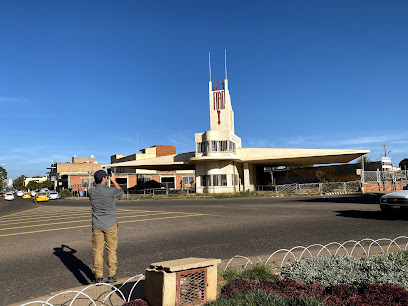
ኣስመራ ካቴድራል | Cathedral Our Lady of the Rosary
Discover the architectural beauty and serene atmosphere of Cathedral Our Lady of the Rosary, a must-see spiritual landmark in Asmara, Eritrea.
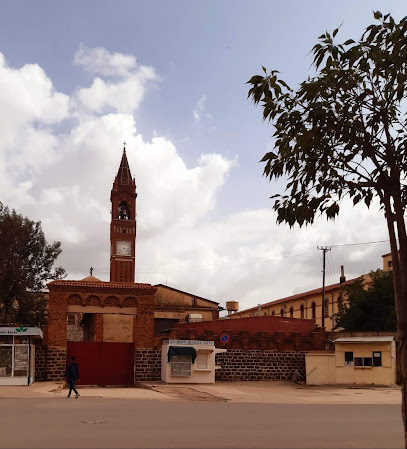
Khulafa al-Rashidun Mosque - ጃምዕ ኹለፋእ ኣልራሺዲን
Explore the serene beauty and rich cultural heritage of the Khulafa al-Rashidun Mosque in Asmara, a true architectural marvel and spiritual haven.
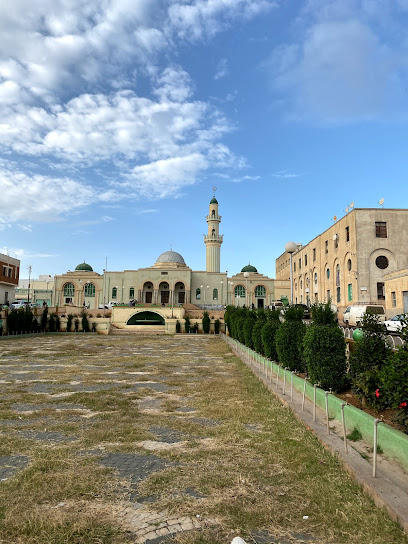
Dahlak Marine National Park
Explore the breathtaking landscapes and vibrant marine life of Dahlak Marine National Park, Eritrea's hidden treasure for nature lovers and adventure seekers.
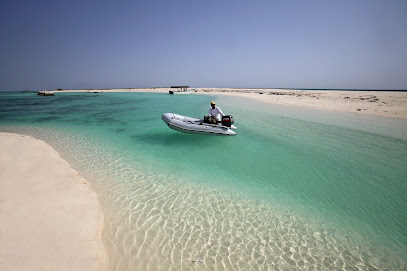
Mai jah jah
Explore the vibrant atmosphere of Mai jah jah, a scenic promenade in Asmara, Eritrea, where culture, community, and stunning views converge.
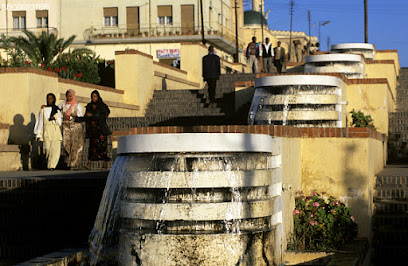
Imperial Palace
Explore the Imperial Palace in Mitsiwa, Eritrea – a magnificent memorial showcasing the country's rich history and architectural splendor.
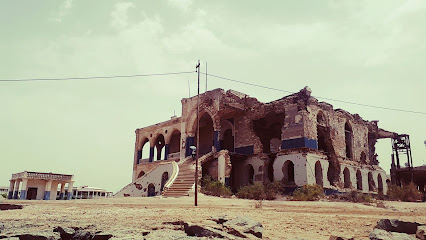
Adulis Travel
Discover the beauty of Eritrea with Adulis Travel - your expert guide to the country's rich culture and breathtaking landscapes.
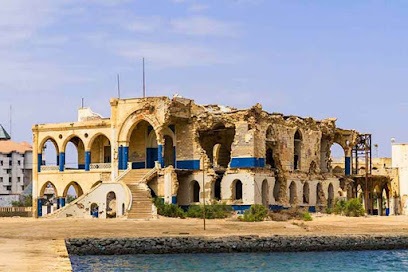
Debre Bizen
Explore the serenity and spiritual depth of Debre Bizen Monastery in Nefasit, Eritrea, a hidden gem rich in history and breathtaking landscapes.
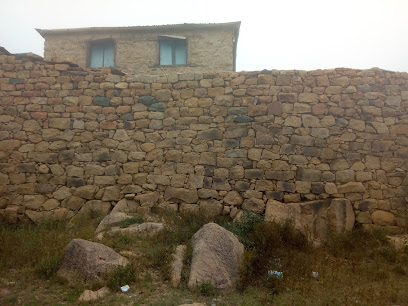
Semenawi Bahri National Park
Explore the breathtaking beauty and rich biodiversity of Semenawi Bahri National Park in Eritrea, an unforgettable destination for nature lovers and adventure seekers.
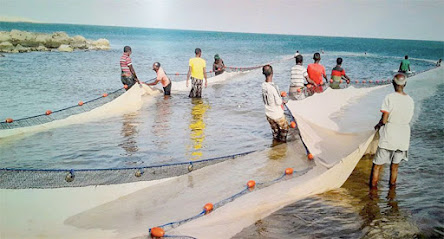
Anseba Eritrea
Explore the untouched beauty and rich culture of Anseba, Eritrea – a hidden gem for nature lovers and cultural enthusiasts.

Anseba
Explore Anseba, Eritrea: A tranquil haven of stunning waters and lush landscapes perfect for relaxation and adventure.

Logo Anseba
Explore the serene waters of Logo Anseba in Eritrea, a tranquil escape perfect for relaxation and adventure amidst stunning natural beauty.

Unmissable attractions to see
ዲጋ ከርከበት Kerkebt Dam
Discover the serene beauty of Kerkebt Dam in Eritrea, a remarkable tourist attraction that blends natural splendor with essential water management.
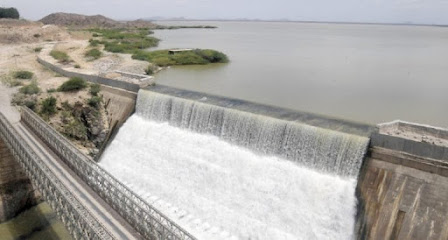
Qunie Eritrea Eritrea
Experience the breathtaking hiking trails of Qunie, Eritrea, where nature's beauty awaits every adventurer.

Daero ዳዕሮ ገሽናሽም
Experience the rich heritage and stunning beauty of Daero Kibrti, a captivating tourist attraction in Gashi Nashim, Eritrea.
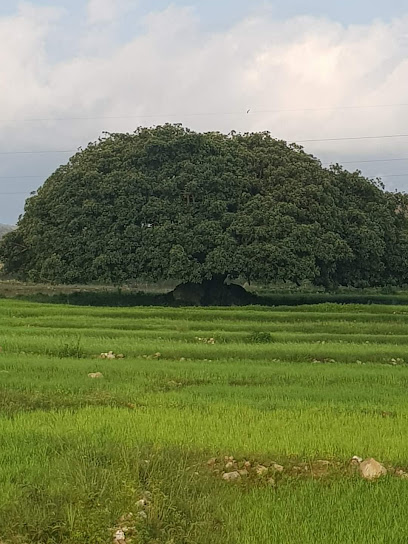
حفير كركبة الاقتصادي KARKABT DAM FOR ECONOMY
Explore the tranquil beauty and economic significance of Karkabt Dam in Barka, Eritrea, where nature and sustainability meet.
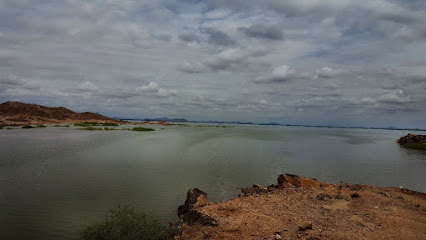
ዓንሰባ ፓርክ Anseba Park
Discover the tranquil beauty of Anseba Park in Keren, Eritrea, a perfect escape for nature lovers and those seeking relaxation amidst lush greenery.

ጅንዲ
Explore the breathtaking hiking trails of Ad Amer, Eritrea, where nature's beauty unfolds in every step you take.

سروا
Explore the stunning hiking trails of Serwa in Halhal, Eritrea, where breathtaking landscapes and diverse wildlife await every adventurer.

Diga Adi Hans
Explore Diga Adi Hans, a captivating tourist attraction in Dem Sebai, Eritrea, where enchanting landscapes meet rich cultural heritage.

ANSABA WILD PLACE
Discover the serene beauty of Ansaba Wild Place in Eritrea, a perfect escape for nature lovers and adventure seekers alike.

جبل مؤسار بقل كبت قرط
Explore the natural beauty and stunning vistas of Mount Measr in Kibt Qart, a hidden gem in Eritrea perfect for hiking and photography.

Harenbescha
Discover the tranquil beauty of Harenbescha, a serene garden in `Ilaber'id, Eritrea, perfect for relaxation and nature lovers.

ደላሊባይ Delalibay
Discover the tranquility of Delalibay, a stunning garden in Adi Tekelezan, Eritrea, perfect for relaxation and nature exploration.

Erbaro
Discover the serene beauty of Erbaro in Berekintiya, Eritrea, a lush garden oasis perfect for relaxation and cultural exploration.

قرطة
Discover the breathtaking hiking trails of Qartah in Rahei, Eritrea, where nature, adventure, and stunning landscapes converge.

جبل اسنفاء ASNFAE MOUNTAINS
Explore the stunning ASNFAE Mountains in Eritrea, where adventure and breathtaking natural beauty await every traveler.

Essential places to dine
Ghibabo Restaurant And Pizzeria
Discover exquisite flavors at Ghibabo Restaurant And Pizzeria in Asmara – where Eritrean tradition meets Italian excellence.
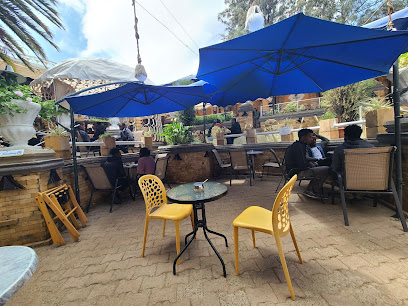
Golden Fork Fast Food
Discover authentic Eritrean flavors at Golden Fork Fast Food in Asmara - where every meal is a cultural experience.

Al Sicomoro Restaurant
Experience authentic Italian cuisine at Al Sicomoro Restaurant in Asmara—where every dish tells a story.
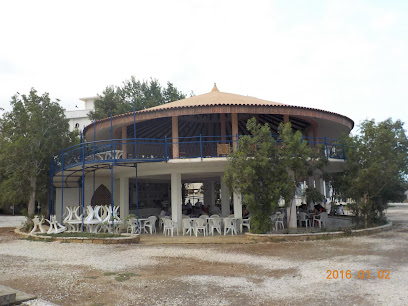
ማእከላይ ከረን Central Keren
Experience authentic Eritrean flavors at Central Keren - where culinary tradition meets modern dining in the heart of Keren.
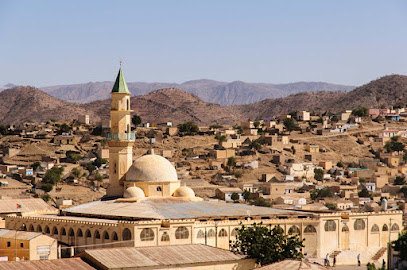
The Roof Garden
Discover exquisite Eritrean cuisine at The Roof Garden in Asmara, offering breathtaking views and an inviting atmosphere.
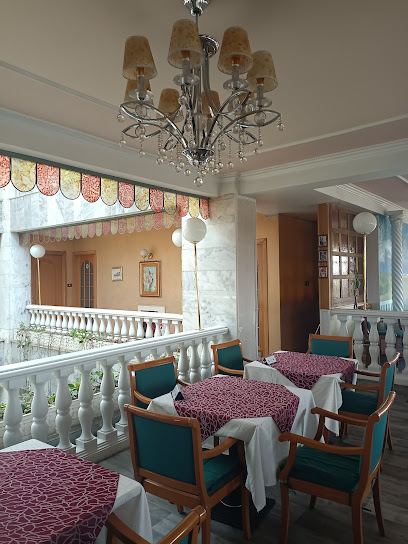
Casa degli Italiani Restaurant
Experience authentic Italian cuisine at Casa degli Italiani Restaurant in Asmara, where every meal is a delightful journey into Italy's rich culinary heritage.

Arobana Restaurant
Experience authentic Eritrean flavors at Arobana Restaurant in Asmara - where every meal tells a story.
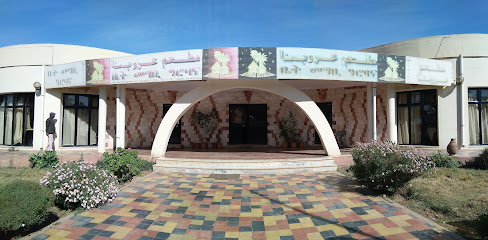
Alba Bistro Restaurant
Discover Alba Bistro Restaurant in Asmara - where fast food meets local flavor for an unforgettable dining experience.
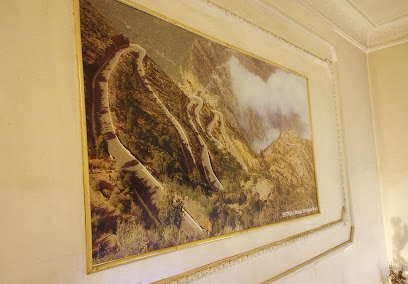
Admas Restaurant & Bar
Experience authentic Eritrean cuisine at Admas Restaurant & Bar in Asmara - where culture meets culinary excellence.
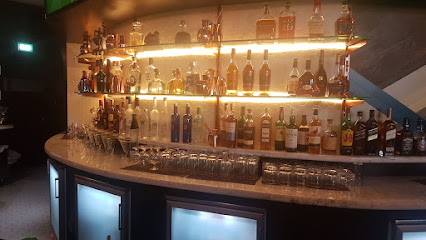
Ararat Pizza & Grill
Discover the flavors of Eritrea at Ararat Pizza & Grill in Asmara - where every bite tells a story.
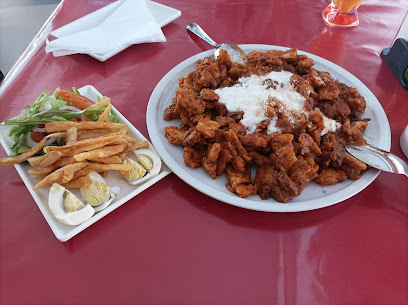
Bet Qursi Torino
Experience authentic Eritrean cuisine at Bet Qursi Torino in Asmara - where flavor meets tradition in every dish.
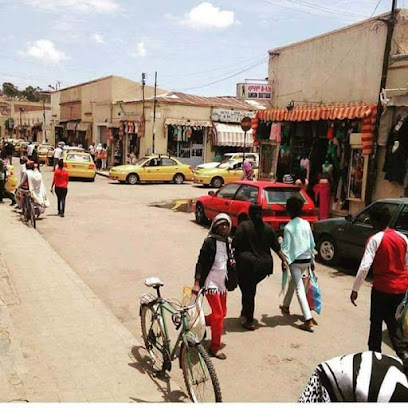
Hibal Snack Bar
Experience authentic Eritrean flavors at Hibal Snack Bar in Asmara—your gateway to delightful culinary adventures.
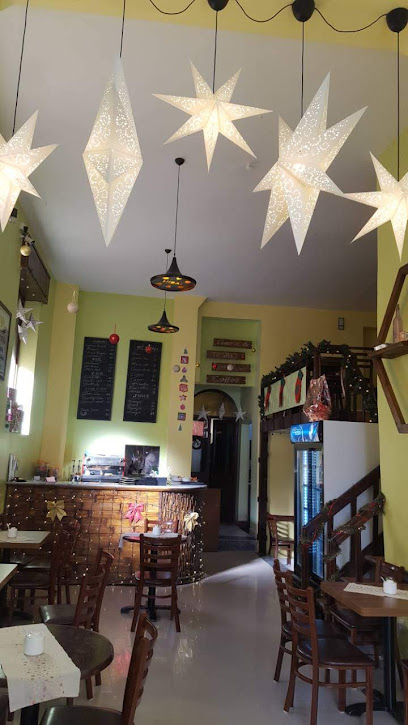
Dream Park
Experience authentic Eritrean cuisine at Dream Park - where culinary delights meet warm hospitality in Asmara.
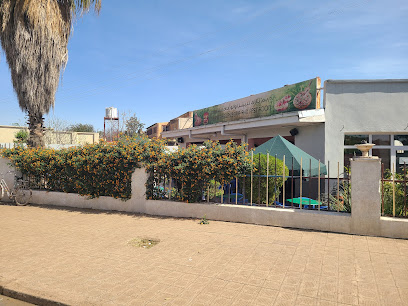
Eritrean Asmeea Senbel
Experience authentic Eritrean cuisine at Asmeea Senbel in Asmara – where tradition meets flavor in every dish.

LAZA RESTAURANT
Experience authentic Eritrean flavors at LAZA Restaurant in Asmara—where traditional meets contemporary cuisine.
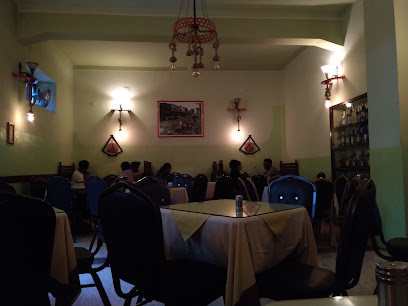
Markets, malls and hidden boutiques
Zara Boutique
Explore trendy clothing and unique styles at Zara Boutique in Asmara, Eritrea - where fashion meets tradition.
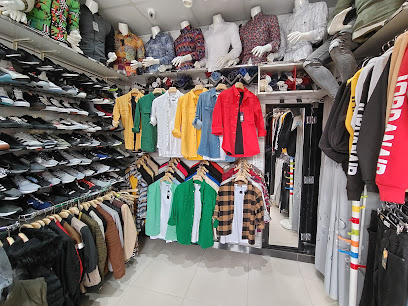
Dukan Yosief Bilenay
Explore authentic Eritrean flavors at Dukan Yosief Bilenay, a local grocery store in Keren offering unique products and a taste of local culture.

ደሊና ቡቲክ DELINA BOUTIQUE
Discover the elegance of Eritrean fashion at Delina Boutique, a unique shopping destination in Asmara offering handcrafted pieces and local artistry.
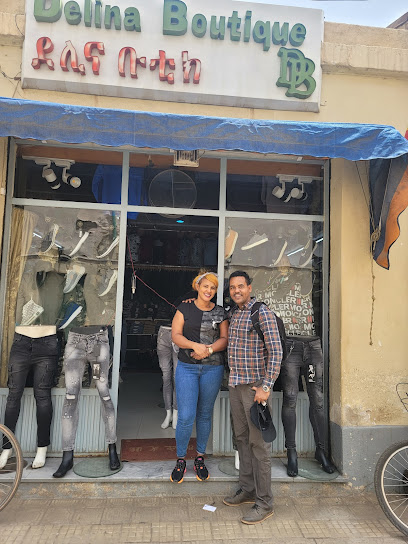
MENDER BOUTIQUE
Explore Mender Boutique in Asmara for unique men's fashion that blends contemporary styles with local craftsmanship.
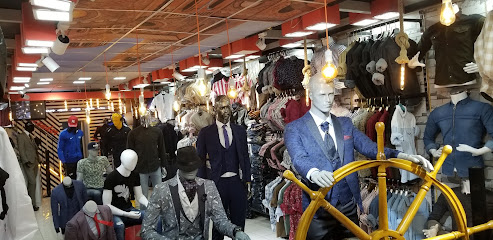
Hadas kids store
Discover stylish and comfortable baby clothing at Hadas Kids Store in Asmara, Eritrea - a must-visit for families exploring the city.
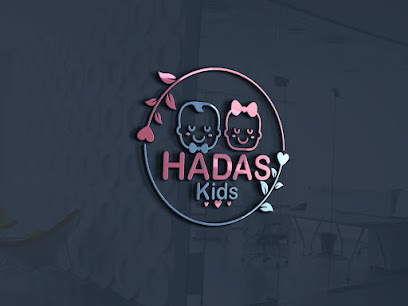
Shop enda kunbilachew
Discover the charm of Eritrean culture at Shop Enda Kunbilachew in Asmara, where local crafts and daily essentials await your exploration.

Saleh Aman boutique
Discover Eritrean fashion at Saleh Aman Boutique, where vibrant culture meets contemporary style in the heart of Asmara.

Maqadisho coffe
Experience the essence of Eritrean hospitality at Maqadisho Coffee, where every cup tells a story and every bite delights.

طاحونة هبرو ظليم
Discover the vibrant essence of Eritrea at طاحونة هبرو ظليم, a charming general store filled with local crafts and authentic flavors.

Osman Idris. Shop
Explore the essence of Eritrea at Osman Idris Shop, your go-to convenience store for local snacks and essentials in Rahei.

Sigr riba
Discover the essence of Eritrea at Sigr riba, a charming general store in Hagaz offering unique local products and a taste of culture.

Oasis Shop Boutique
Explore unique local crafts and the rich heritage of Eritrea at Oasis Shop Boutique in Asmara.
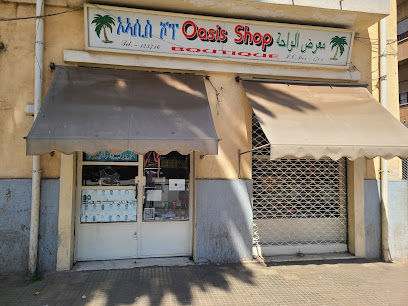
بوتيك روعة
Explore بوتيك روعة in Afabet for an authentic taste of Eritrean crafts, culture, and unique souvenirs.

Dukan
Discover the vibrant fashion scene of Asmara at Dukan, where local culture meets contemporary style in a unique shopping experience.

Dukan enda irdi qubaisi (titi)
Immerse yourself in Eritrean culture at Dukan enda irdi qubaisi, a local grocery store filled with fresh produce and traditional delights.

Essential bars & hidden hideouts
ማእከላይ ከረን Central Keren
Discover the flavors of Eritrea at Central Keren, a top-notch restaurant in the heart of Keren, offering a delightful mix of local and international cuisine.
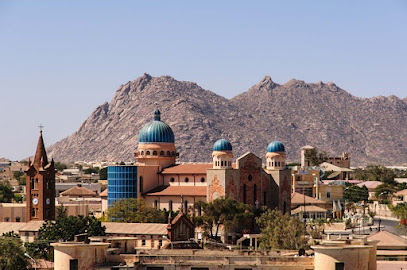
Bar Pasticceria Vittoria
Experience the delightful flavors of Eritrea at Bar Pasticceria Vittoria, a must-visit café in Asmara for pastries and local culture.
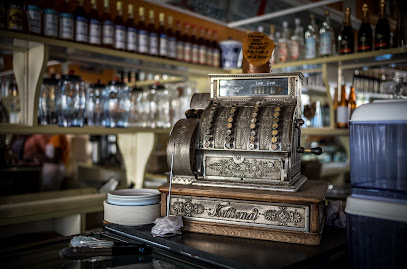
Bar selam ባር ሰላም ( እንዳ ሳባ)
Experience the vibrant atmosphere and authentic Eritrean drinks at Bar Selam in Adi Kontsi, where hospitality meets culture.

Admas Restaurant & Bar
Experience the vibrant flavors of Eritrea at Admas Restaurant & Bar, where local cuisine meets a lively atmosphere in Asmara.
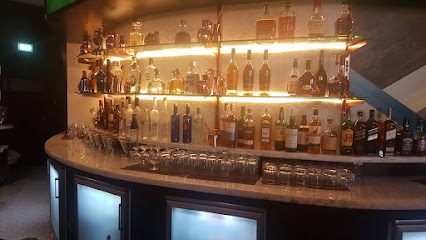
Bar Zilli
Experience the vibrant flavors of Eritrea at Bar Zilli, a grill and bar in Asmara with unique Italian decor and delicious grilled delicacies.
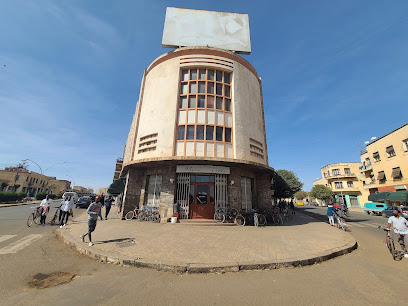
Goitom's Bar and Restaurant
Discover the authentic taste of Eritrea at Goitom's Bar and Restaurant, where vibrant flavors and a lively atmosphere await every visitor.
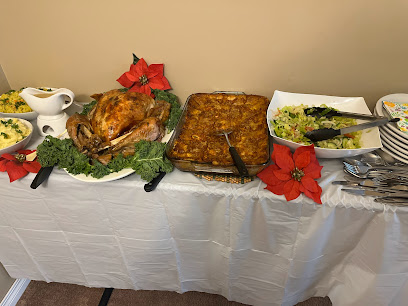
Yohana bar
Experience the vibrant culture and hospitality of Eritrea at Yohana Bar in Keren, a perfect spot to unwind and connect with locals.

Estif Restaurant Cafe
Experience authentic Eritrean cuisine and warm hospitality at Estif Restaurant Cafe in Keren, the perfect stop for culinary adventurers.

Castello Bar And Restaurant
Discover the rich flavors of Eritrean cuisine at Castello Bar and Restaurant in Asmara, where every dish tells a story.
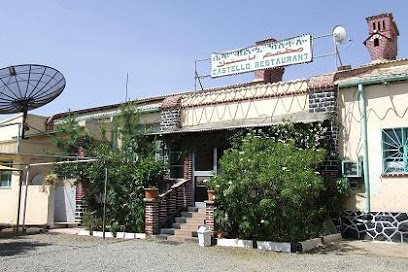
Hebron Bar And Restaurant
Discover the flavors of Eritrea at Hebron Bar and Restaurant, a must-visit dining spot in Asmara offering local dishes and a welcoming atmosphere.
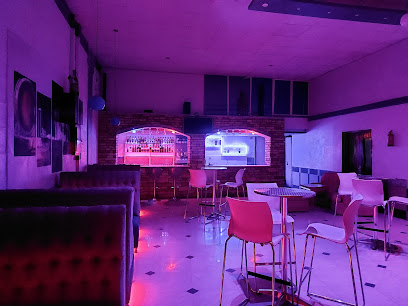
Sahil Amusement Park
Discover the fun and excitement of Sahil Amusement Park in Keren, Eritrea - a family-friendly destination filled with thrilling rides and vibrant entertainment.

حلحل
Discover the vibrant nightlife of Halhal at this charming local bar, where culture meets relaxation in a welcoming atmosphere.
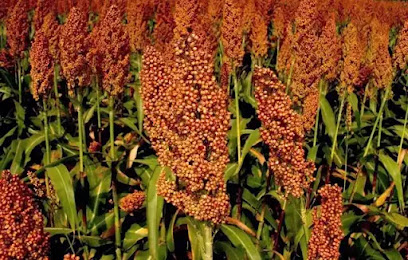
Flamingo (Bar Kennedy)
Discover the cozy charm of Flamingo (Bar Kennedy) in Asmara, where exceptional coffee and a warm atmosphere await every traveler.

Bar Araia Sebhatu
Discover the essence of Eritrean culture at Bar Araia Sebhatu, a cozy bar in Asmara offering delightful local and international drinks.

Local Phrases about Anseba Region
-
- Helloሰላም
[Selam] - Goodbyeደሓን ሰላማዊ
[Dehan selamawi] - Yesእወ
[Ewu] - Noኣይ
[Ai] - Please/You're welcomeኣገደስቲ/እንቋፍረት
[Agadesi/Engafrat] - Thank youእንቋፍረት
[Engafrat] - Excuse me/Sorryሓበሬታ/ቀንዕ
[Habretta/Keney] - How are you?እንቋፍረት?
[Engafrat?] - Fine. And you?ቆይታ. እንቋፍረት?
[Koyta. Engafrat?] - Do you speak English?እንቋፍረት እንተከተል እስክነብርኩ?
[Engafrat enteketel eskenabruku?] - I don't understandኣለዋም አለዋም
[Alewm alem]
- Helloሰላም
-
- I'd like to see the menu, pleaseከም መንገዲ እዩ ምስላእ
[Kem menegedi eyu msela'] - I don't eat meatከም ሓምለ ምስሊ
[Kem hamle msli] - Cheers!ሰላማዊ!
[Selamawi!] - I would like to pay, pleaseከም ክፍታ እዩ ምስላእ
[Kem kifta eyu msela']
- I'd like to see the menu, pleaseከም መንገዲ እዩ ምስላእ
-
- Help!ርግን!
[Rign!] - Go away!ማይን!
[Main!] - Call the Police!ሓበሬታ ብሓጎስ ኣብዚ!
[Habretta b'ha'gus abzi!] - Call a doctor!ሓበሬታ ብዶክተር ኣብዚ!
[Habretta b'dokter abzi!] - I'm lostተፈሊጡ
[Teflitu] - I'm illእንቋፍረት
[Engafrat]
- Help!ርግን!
-
- I'd like to buy...ከም ሓሳብ እዩ
[Kem hasab eyu] - I'm just lookingኣካል ክፍታ እዩ
[Akal kifta eyu] - How much is it?ክፍታዉ ኣብዚ ኣለዋ?
[Kiftawu abzi alewa?] - That's too expensiveኣብዚ ነዚ ነብር
[Abzi nzi nibr] - Can you lower the price?ሓሳብ ከኣ ኣለዋ?
[Hasab kaa alewa?]
- I'd like to buy...ከም ሓሳብ እዩ
-
- What time is it?ሰዓም ኣብዚ ነይሩ?
[Sa'am abzi nayru?] - It's one o'clockኣእምሮ ክስላእ
[Aemro kisela'] - Half past (10)በመስማዒ ክስላእ (10)
[Be'mesma'i kisela' (10)] - Morningኣቦ
[Abo] - Afternoonኣምጹር
[Amtsur] - Eveningማብሪ
[Mabri] - Yesterdayትሕቲአ
[Teh'ti'a] - Todayሚኒስ
[Minis] - Tomorrowማጽንቕ
[Mats'enk] - 1ኣእምሮ
[Aemro] - 2ርግኢ
[Rigi] - 3ማሕረቢ
[Mahrebi] - 4ኣምሓረ
[Amhare] - 5ሕድረ
[Hidre] - 6ሓምለ
[Hamle] - 7ሰብዓ
[Seba] - 8ሰምሓ
[Semha] - 9ሰሓይ
[Sehay] - 10ስልሕ
[Slih]
- What time is it?ሰዓም ኣብዚ ነይሩ?
-
- Where's a/the...?ዝሓለወ ኢና/ንና...?
[Zehalew ina/nan...?] - What's the address?ኣብዚ እዩ ኣስራሕ?
[Abzi eyu asrah?] - Can you show me (on the map)?ፈሊጥ ናይዶ ኣብዚ ኣለዋ?
[Filit naydo abzi alewa?] - When's the next (bus)?ምስ ሕማም ንብዕሙና እዩ?
[Ms hamam n'bemuna eyu?] - A ticket (to ....)ትኳለ ክስላእ (....)
[Tikale kisela' (....)]
- Where's a/the...?ዝሓለወ ኢና/ንና...?
History of Anseba Region
-
The Anseba Region, nestled in the highlands of Eritrea, holds a rich tapestry of ancient history. It was an integral part of the Aksumite Empire, which flourished from approximately the 1st to the 7th century AD. This powerful kingdom was a significant player in the trade routes connecting the Roman Empire and ancient India, and it left behind remarkable remnants, such as obelisks, inscriptions, and ancient structures that dot the landscape of Anseba.
-
Following the decline of the Aksumite Empire, the region saw the rise of various medieval Christian kingdoms. These kingdoms maintained the region's Christian heritage and continued its trade connections. The influence of these medieval kingdoms can still be felt in the region’s churches and monasteries, many of which were built during this period and feature unique architectural styles and religious art.
-
In the 16th century, the Ottoman Empire expanded its reach into the Horn of Africa, including the Anseba Region. The Ottoman presence brought new administrative structures, trade practices, and cultural influences. Ottoman architecture and fortifications, though less prominent, can be traced in some parts of the region, reflecting a blend of local and Ottoman styles.
-
The late 19th and early 20th centuries marked a significant period in Anseba's history with the arrival of Italian colonists. Italy established Eritrea as a colony in 1890, and the Anseba Region saw the development of infrastructure, including roads, railways, and buildings. The Italian influence is still evident in the region’s architecture, particularly in cities like Keren, where colonial-era buildings and urban planning reflect the Italian style.
-
One of the pivotal moments in Anseba's modern history was the Battle of Keren during World War II. This battle, fought between British Commonwealth forces and the Italian Army in 1941, was a crucial turning point in the East African Campaign. The rugged terrain of the region played a significant role in the battle's outcome. Today, the remnants of this battle, such as war cemeteries and memorials, serve as solemn reminders of the region’s role in global conflicts.
-
Following Eritrea's independence from Ethiopia in 1993, the Anseba Region has undergone significant changes. Efforts to rebuild and develop the region have led to improvements in infrastructure, education, and healthcare. The cultural diversity of Anseba, with its mix of ethnic groups and traditions, has been a focal point in the region's post-independence identity, celebrating its rich heritage while looking towards the future.
-
Anseba is home to various ethnic groups, including the Tigre, Bilen, and Tigrinya people, each contributing to the region's vibrant cultural tapestry. Traditional music, dance, and festivals are integral to the daily life of the inhabitants. The region is also known for its artisanal crafts, such as pottery and weaving, which are passed down through generations. Visitors can experience this cultural richness through community visits and local markets.
Anseba Region Essentials
-
The Anseba Region is located in the central part of Eritrea. The nearest international airport is Asmara International Airport, approximately 70 kilometers away from Keren, the regional capital. From Asmara, you can take a bus or hire a taxi to reach Keren. Buses are a cost-effective option and operate regularly between Asmara and Keren, taking about 1.5 to 2 hours. Alternatively, renting a car can offer more flexibility for exploring the region.
-
Within Anseba Region, public minibuses (also known as 'Higer buses') and taxis are the most common modes of transportation. Taxis can be hired for the day and are relatively affordable. For short distances, bicycles and walking are popular among locals. Roads can be rough in some areas, so if you plan to rent a car, a 4x4 vehicle is recommended for navigating more remote parts of the region.
-
The official currency in Eritrea is the Nakfa (ERN). Credit cards are not widely accepted, so it is essential to carry cash. ATMs are available in major towns like Keren, but they can be unreliable, so it's advisable to bring enough cash for your entire trip. Currency exchange services are available at banks and some hotels in Asmara and Keren.
-
Anseba Region is generally safe for tourists, but it is wise to take standard precautions. Avoid walking alone at night, especially in unfamiliar areas. Petty crime, such as pickpocketing, can occur in crowded places, so keep an eye on your belongings. There are no specific high-crime areas targeting tourists, but always remain vigilant.
-
In case of emergency, dial 113 for police assistance or 114 for ambulance services. The main hospital in Keren provides medical services, but facilities may be limited. It is highly recommended to have comprehensive travel insurance that covers medical emergencies. Pharmacies are available in Keren for minor health issues, but it's a good idea to bring any necessary medications with you.
-
Fashion: Do dress modestly, especially in rural areas and religious sites. Avoid wearing overly revealing clothing. Religion: Do respect local religious practices. Always remove your shoes before entering a mosque and dress conservatively. Public Transport: Do be respectful and courteous. Avoid eating or drinking on public transport. Greetings: Do greet people with a handshake or a slight bow of the head. Greetings are important in Eritrean culture. Eating & Drinking: Do try local dishes and accept food offerings graciously. Don't waste food, as it is considered disrespectful.
-
To experience Anseba Region like a local, visit the weekly markets in Keren, where you can buy fresh produce, traditional textiles, and crafts. Engage with locals, who are known for their hospitality and willingness to share stories about their culture and history. Don't miss visiting the historic Debre Sina Monastery and the scenic Filfil Solomuna. For a unique experience, attend local festivals and events to immerse yourself in the vibrant culture of the region.
Nearby Cities to Anseba Region
-
Things To Do in Asmara
-
Things To Do in Teseney
-
Things To Do in Dekemhare
-
Things To Do in Mendefera
-
Things To Do in Adi Quala
-
Things To Do in Adi Keyh
-
Things To Do in Axum
-
Things To Do in Mekele
-
Things To Do in Gondar
-
Things To Do in Jizan
-
Things To Do in Lalibela
-
Things To Do in Abha
-
Things To Do in Bahir Dar
-
Things To Do in Al Baha
-
Things To Do in Khamis Mushait







